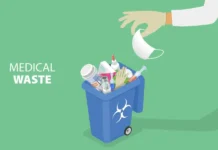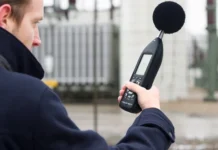In recent years, the United States has been facing an opioid addiction crisis. According to the National Institute on Drug Abuse (NIDA), drug overdose deaths involving any opioid continued to rise through 2021, reaching 80,411 deaths, while the number of deaths involving opioids remained steady.
These shocking statistics have prompted healthcare professionals and lawmakers to explore alternative relief options for opioid addiction. One such option that is gaining attention is medical cannabis.
Patients seeking relief from opioid addiction can apply for a medical marijuana card online from TeleLeaf, which provides access to medical cannabis for qualifying patients.
Understanding Opioid Addiction
Opioids are highly addictive drugs that include prescription painkillers, such as oxycodone and hydrocodone, as well as heroin.
Long-term opioid use results in lethal overdoses, life-threatening respiratory issues, dependency, tolerance, and addiction.
Overcoming addiction to these substances is challenging, resulting in severe consequences for patients and communities.
The Opioid Epidemic in Louisiana
Like many other states in the country, Louisiana has not been immune to the opioid epidemic. According to the Centers for Disease Control and Prevention (CDC), the state has one of the highest opioid overdose death rates in the country. This crisis has prompted the Louisiana Department of Health to seek innovative solutions to combat addiction and reduce the number of opioid-related deaths.
The Conventional Approach
Traditionally, the treatment for opioid addiction has relied heavily on medications like methadone and buprenorphine, which aim to ease withdrawal symptoms and reduce cravings.
While these medications have shown some success, they come with their own set of challenges, including potential side effects and the risk of dependence.
Additionally, access to these treatments may be limited in certain areas, particularly in rural or underserved communities. This lack of access can prevent patients from receiving the care they need to overcome their addiction and lead healthy, fulfilling lives.
The Legalization of Medical Cannabis in Louisiana
Medical cannabis has been gaining recognition as an effective alternative to traditional opioid addiction treatments. The United States is currently experiencing a shift in attitudes towards cannabis, with many states legalizing its medical use.
Louisiana is one such state that has enacted laws allowing the use of medical cannabis for different conditions, including opioid addiction.
The Success of Medical Cannabis in Other States
Several states across the country have already implemented medical cannabis programs as part of their opioid addiction treatment strategies, and the results have been promising.
A study published in the Journal of the American Medical Association found that states with medical cannabis laws experienced a significant decrease in opioid overdose deaths compared to states without such laws. This evidence further supports the effectiveness of medical cannabis as a treatment option.
How Medical Cannabis Helps with Opioid Addiction
Numerous studies have found that cannabis can help manage pain, reduce opioid cravings, and ease withdrawal symptoms.
-
Pain Relief
One of the main reasons people turn to opioids is to manage chronic pain. Medical cannabis, with its powerful analgesic properties, can provide similar pain relief without the risk of addiction. By utilizing medical cannabis, patients can effectively manage their pain and reduce their reliance on opioids.
-
Withdrawal Symptoms
Another challenge patients face when trying to overcome opioid addiction is the painful withdrawal symptoms. Medical cannabis can help ease these symptoms, making the detoxification process more bearable. The cannabinoids present in cannabis interact with the body’s endocannabinoid system, which plays an important role in regulating mood, pain, and sleep.
-
Craving Reduction
Cravings for opioids can be overwhelming for patients in recovery. Medical cannabis has shown promise in reducing these cravings, giving patients a better chance at avoiding relapse. The compounds in cannabis interact with the brain’s reward system, helping to dampen the desire for opioids.
Medical cannabis helps patients with opioid addiction manage their symptoms and improve their quality of life. By addressing both pain and addiction simultaneously, medical cannabis offers a holistic treatment approach that tackles the underlying factors contributing to opioid misuse.
Conclusion
The legalization of medical cannabis in Louisiana has opened up new possibilities for providing relief from opioid addiction. With its capacity to reduce opioid use and help ease withdrawal symptoms, medical cannabis could be a valuable tool in the fight against the opioid epidemic.
For patients affected by opioid addiction, consider medical cannabis as an option for recovery. Patients are encouraged to seek detailed information and consult healthcare professionals to make informed decisions about their healthcare options.
For more information, visit ApzoMedia



































































